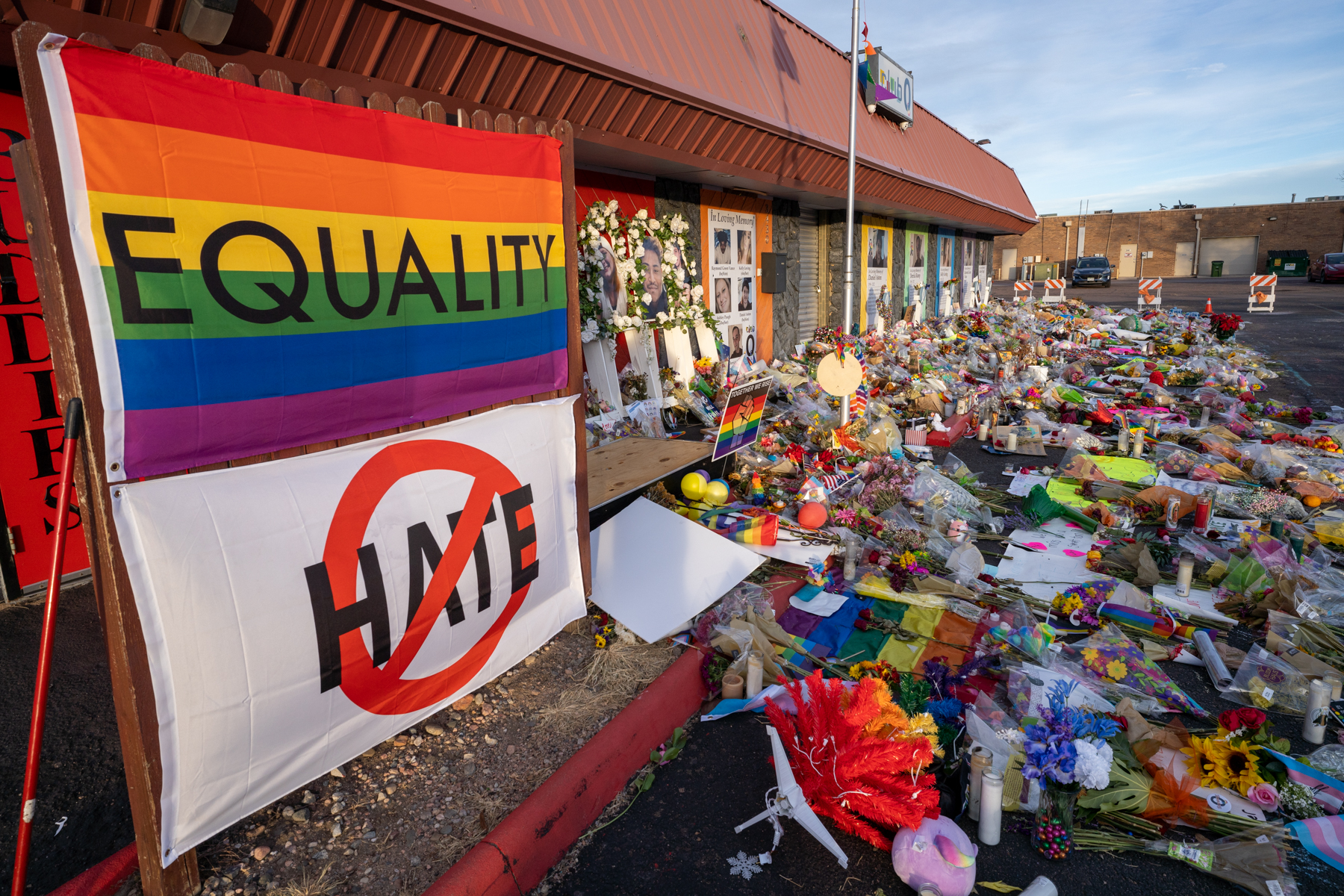
“I’ve been tracking hate-fueled extremist communities for more than 25 years but I’ve never seen hate speech — let alone the calls for violence that they spark — reach the volume they have now,” extremism researcher Rita Katz wrote in an email to The Associated Press.
Katz is co-founder of SITE Intelligence Group, which monitors far-right internet sites and has identified dozens of threats against LGBTQ groups and events in the U.S. in recent months. SITE released a bulletin Thursday detailing death threats against drag performers after one appeared at the White House bill signing of the Respect for Marriage Act.
Researchers at the Center for Countering Digital Hate, a nonprofit with offices in the U.S. and United Kingdom, studied the social media messages that spread immediately after the Colorado Springs shooting in November and found many examples of far-right Trump supporters celebrating the carnage. The users who didn’t praise the shooting often claimed it was faked by authorities and the media as a way to make conservatives look bad.
Online hate speech has been linked to offline violence in the past, and many of the perpetrators of recent mass shootings were later found to be immersed in online worlds of bigotry and conspiracy theories.
Officials in a number of countries have cited social media as a key factor in extremist radicalization, and have warned that COVID restrictions and lockdowns have given extremist groups a powerful recruiting tool.
Despite rules prohibiting hate speech or violent threats, platforms such as Facebook and YouTube have struggled to identify and remove such content. In some cases, it’s because people use coded language designed to evade automated content moderation.
Then there’s Twitter, which saw a surge in racist, anti-Semitic and homophobic content following its purchase by Elon Musk, a self-described free speech absolutist. Musk himself posted a tweet this past week that mocked transgender pronouns, as well as another misleadingly suggesting that Yoel Roth, Twitter’s former head of trust and safety, had supported letting children into gay dating apps.
Roth, who is gay, went into hiding after receiving a deluge of threats following Musk’s tweet.
“He (Musk) didn’t use the word ‘groomer’ but that’s the subtext of his tweet is that Yoel Roth is a groomer,” said Bhaskar Chakravorti, dean of global business at the Fletcher School at Tufts University, who has created a “Musk Monitor” tracking hate speech on the site.
“If the owner of Twitter himself is pushing false and hateful content against his former head of safety, what can we expect from this platform?” Chakravorti said.








